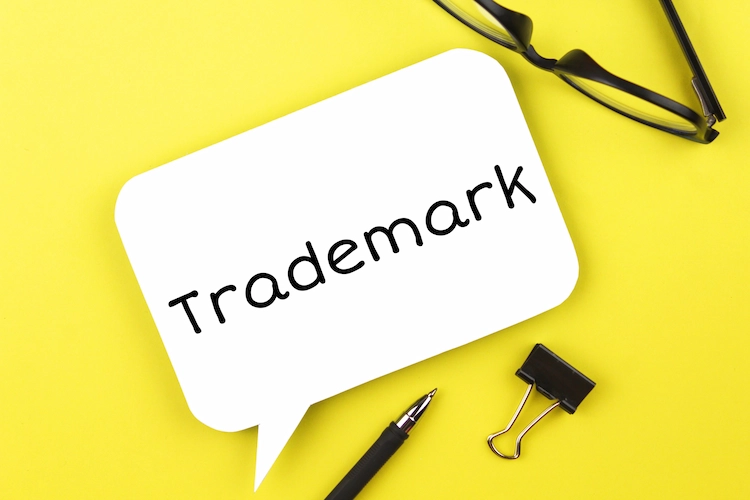Supreme Court Rules Trademark Infringement Damages Include Only Named Defendant’s Profits

In Dewberry Group, Inc. v. Dewberry Engineers, Inc., 604 U.S. __ (2025), the U.S. Supreme
Court held that in awarding the “defendant’s profits” to the prevailing plaintiff in a
trademark infringement suit under the Lanham Act, a court can award only profits
ascribable to the “defendant” itself.
Facts of the Case
As the Supreme Court explained in its option, the trademark dispute involved two
unrelated real-estate companies with the word “Dewberry” in their names. Dewberry
Engineers successfully sued Dewberry Group—a competitor real-estate development
company—for trademark infringement under the Lanham Act. Dewberry Group provides
services needed to generate rental income from properties owned by separately
incorporated affiliates. That income goes on the affiliates’ books; Dewberry Group receives
only agreed-upon fees. And those fees are apparently set at less than market rates—the
Group has operated at a loss for decades, surviving only through cash infusions by John
Dewberry, who owns both the Group and the affiliates.
To reflect that “economic reality,” the District Court treated Dewberry Group and its
affiliates “as a single corporate entity” for purposes of calculating a profits award.
Accordingly, the District Court totaled the affiliates’ real-estate profits from the years
Dewberry Group infringed, producing an award of nearly $43 million.
A divided Fourth Circuit Court of Appeals affirmed. Reiterating the “‘economic reality’ of
Dewberry Group’s relationship with its affiliates,” the majority agreed with the District
Court’s treatment of all the companies “as a single corporate entity.” According to the
appeals court, holding otherwise would give businesses a “blueprint for using corporate
formalities to insulate their infringement from financial consequences.”
Supreme Court’s Decision
The Supreme Court disagreed. It unanimously held that the court could award only profits
properly ascribable to the defendant itself. As Justice Elena Kagan wrote, “the statutory text
authorizing a profits award for trademark infringement offers no support for the approach
the courts below took.”
In reaching its decision, the Court found that because the term “defendant” is not specially
defined, it bears its usual legal meaning. Pursuant to Black’s Dictionary, “defendant” is “the
party against whom relief or recovery is sought in an action or suit.”
In this case, the defendant is the entity named in Dewberry Engineers’ complaint as liable
for infringing the “Dewberry” trademark. “And that entity is Dewberry Group alone,”
Justice Kagan wrote. She further emphasized that the Engineers chose not to add the
Group’s property-owning affiliates as defendants. “Accordingly, the affiliates’ profits are
not the (statutorily disgorgable) ‘defendant’s profits’ as ordinarily understood,” she added.
The Court went on to find that background principles of corporate law support its holding.
Justice Kagan noted that the justices “have often read federal statutes to incorporate” state-
law principles that respect corporate identity, and that under those rules “[i]t is long
settled … that separately incorporated organizations are separate legal units with distinct
legal rights and responsibilities.”
The Court did not address whether or how the courts could have used the just-sum
provision to support a profits award; whether or how courts can look behind a defendant’s
tax or accounting records to consider a defendant’s true financial gain even without relying
on the just-sum provision; and whether veil-piercing remains an available option.
As Justice Kagan noted, “All we hold today is that the courts below were wrong to treat
Dewberry Group and its affiliates as a single entity in calculating the ‘defendant’s profits.’”
The justices left it to the lower courts to address any new theories.
Previous Articles
SCOTUS Decision in Bowe v. United States Is First of the 2026 Term
by DONALD SCARINCI on February 5, 2026
In Bowe v. United States, 607 U.S. ___ (2026), the U.S. Supreme Court held that Title 28 U.S.C. § ...
SCOTUS Rules State Can’t Immunize Parties from Federal Civil Liability
by DONALD SCARINCI on January 29, 2026
In John Doe v. Dynamic Physical Therapy, LLC, 607 U.S. ____ (2025) the U.S. Supreme Court held that...
Supreme Court to Address Racial Discrimination in Jury Selection
by DONALD SCARINCI onWhile the U.S. Supreme Court has concluded oral arguments for the year, it continues to add cases t...
The Amendments
-
Amendment1
- Establishment ClauseFree Exercise Clause
- Freedom of Speech
- Freedoms of Press
- Freedom of Assembly, and Petitition
-
Amendment2
- The Right to Bear Arms
-
Amendment4
- Unreasonable Searches and Seizures
-
Amendment5
- Due Process
- Eminent Domain
- Rights of Criminal Defendants
Preamble to the Bill of Rights
Congress of the United States begun and held at the City of New-York, on Wednesday the fourth of March, one thousand seven hundred and eighty nine.
THE Conventions of a number of the States, having at the time of their adopting the Constitution, expressed a desire, in order to prevent misconstruction or abuse of its powers, that further declaratory and restrictive clauses should be added: And as extending the ground of public confidence in the Government, will best ensure the beneficent ends of its institution.





